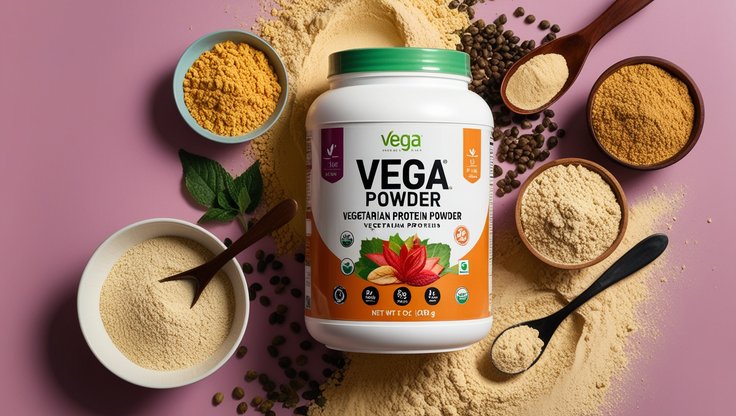Introduction to Protein Powder
Protein powder has become a staple in the diets of many fitness enthusiasts, athletes, and health-conscious individuals. It is a convenient and efficient way to supplement protein intake, which is crucial for muscle growth, repair, and overall health. This article delves into the various aspects of protein powder, including its types, benefits, potential drawbacks, and how to choose the right one for your needs.
The Importance of Protein
Protein is a macronutrient essential for the body’s growth and repair. It is composed of amino acids, which are the building blocks of muscles, tissues, and enzymes. Consuming adequate protein is vital for maintaining muscle mass, especially for those engaging in regular physical activity. While whole food sources like meat, dairy, and legumes are excellent sources of protein, protein powders offer a convenient alternative, particularly for individuals with busy lifestyles.
Types of Protein Powder
There are several types of protein powder available on the market, each with its unique benefits and characteristics. The most common types include whey, casein, soy, pea, hemp, and rice protein.
Whey Protein
Whey protein is derived from milk and is a byproduct of cheese production. It is highly popular due to its complete amino acid profile and rapid absorption rate. Whey protein is available in three forms: concentrate, isolate, and hydrolysate. Whey concentrate is the most affordable and contains some lactose and fat. Whey isolate has a higher protein content and is lower in fat and lactose, making it suitable for those with lactose intolerance. Hydrolysate is pre-digested, allowing for even faster absorption and is often used in medical protein supplements and infant formulas.
Casein Protein
Casein is another milk-derived protein, known for its slow digestion and absorption. It forms a gel-like substance in the stomach, providing a sustained release of amino acids into the bloodstream. This makes casein an excellent choice for a bedtime protein source, helping to prevent muscle breakdown during sleep.
Soy Protein
Soy protein is plant-based and derived from soybeans. It is a complete protein, containing all essential amino acids. Soy protein is a popular choice among vegetarians and vegans. It also contains beneficial compounds like isoflavones, which have been linked to various health benefits, including improved heart health and reduced risk of certain cancers.
Pea Protein
Pea protein is made from yellow split peas and is a good source of branched-chain amino acids (BCAAs), which are vital for muscle growth and repair. It is hypoallergenic, making it suitable for individuals with allergies to dairy, soy, or gluten. Pea protein is also environmentally friendly, as peas require less water and fertilizer compared to other protein sources.
Hemp Protein
Hemp protein is derived from hemp seeds and is rich in omega-3 and omega-6 fatty acids, as well as fiber. While it is not a complete protein, it contains all nine essential amino acids in relatively good amounts. Hemp protein is also easy to digest and is a great option for those looking for a plant-based protein with additional nutritional benefits.
Rice Protein
Rice protein is made from brown rice and is another hypoallergenic option. It is not a complete protein on its own, but when combined with other plant-based proteins like pea protein, it can provide a complete amino acid profile. Rice protein is easily digestible and a good choice for individuals with food sensitivities.
Benefits of Protein Powder
Protein powder offers numerous benefits beyond just muscle building. Some of the key advantages include:
Convenient Source of High-Quality Protein
Protein powders provide a quick and easy way to increase protein intake without the need for cooking or preparing meals. This convenience is particularly beneficial for those with hectic schedules or limited access to high-protein foods.
Supports Muscle Growth and Repair
Consuming protein powder after a workout helps to stimulate muscle protein synthesis, leading to increased muscle mass and strength. The presence of essential amino acids, particularly BCAAs, plays a critical role in this process.
Aids in Weight Management
Protein is known to promote satiety, helping individuals feel fuller for longer periods. This can aid in weight management by reducing overall calorie intake. Additionally, protein has a higher thermic effect of food (TEF) compared to carbohydrates and fats, meaning the body burns more calories digesting protein.
Enhances Recovery
Athletes and active individuals often experience muscle soreness and fatigue after intense exercise. Protein powder can help speed up recovery by providing the necessary nutrients to repair damaged muscle tissues.
Versatility in Diet
Protein powders can be easily incorporated into various recipes, such as smoothies, baked goods, and protein bars. This versatility allows individuals to enjoy different flavors and textures while meeting their protein needs.
Potential Drawbacks of Protein Powder
While protein powder can be beneficial, it is essential to be aware of potential drawbacks and considerations.
Possible Allergens and Intolerances
Some protein powders, particularly those derived from dairy, may cause digestive issues in individuals with lactose intolerance or milk allergies. It is crucial to choose a protein powder that aligns with your dietary restrictions and sensitivities.
Additives and Sweeteners
Many commercial protein powders contain additives, artificial sweeteners, and preservatives. These ingredients can cause gastrointestinal discomfort or other adverse effects in some people. Opting for a protein powder with minimal ingredients and natural sweeteners can help mitigate these concerns.
Overconsumption of Protein
While protein is essential for health, excessive intake can strain the kidneys and liver, especially in individuals with pre-existing conditions. It is important to balance protein intake with other macronutrients and to consult with a healthcare professional if you have any underlying health issues.
Environmental Impact
The production of certain protein powders, particularly those derived from animal sources, can have a significant environmental impact. Plant-based protein powders generally have a lower environmental footprint, making them a more sustainable option.
How to Choose the Right Protein Powder
Selecting the right protein powder involves considering several factors, including dietary preferences, fitness goals, and potential allergies or intolerances.
Identify Your Protein Needs
Determine your daily protein requirements based on your age, gender, activity level, and fitness goals. Most active individuals benefit from consuming 1.2 to 2.2 grams of protein per kilogram of body weight per day.
Consider the Source
Choose a protein powder that aligns with your dietary preferences and restrictions. For example, if you are lactose intolerant, opt for plant-based or lactose-free options. If you are vegan, ensure the protein powder is free from animal-derived ingredients.
Check the Ingredient List
Read the ingredient list carefully to avoid unwanted additives, artificial sweeteners, and allergens. Look for protein powders with minimal ingredients and natural flavors or sweeteners.
Evaluate Protein Content and Quality
Assess the protein content per serving and the amino acid profile of the protein powder. High-quality protein powders should provide at least 20 grams of protein per serving and contain all essential amino acids.
Taste and Mixability
Protein powders vary in taste and texture. Some may have a chalky or gritty texture, while others blend smoothly into liquids. Trying sample sizes or reading reviews can help you find a protein powder that suits your taste preferences.
Brand Reputation and Certification
Choose protein powders from reputable brands that undergo third-party testing for quality and purity. Certifications such as NSF Certified for Sport or Informed-Sport ensure that the product is free from banned substances and contaminants.
Incorporating Protein Powder into Your Diet
Adding protein powder to your diet can be simple and enjoyable. Here are some ideas to get you started:
Protein Shakes and Smoothies
One of the most popular ways to consume protein powder is by mixing it with water, milk, or a milk alternative. Adding fruits, vegetables, and healthy fats like nut butter can create a nutritious and satisfying smoothie.
Baking with Protein Powder
Protein powder can be incorporated into baked goods like muffins, pancakes, and cookies to boost their protein content. This can be particularly useful for those looking to increase their protein intake without consuming additional meals.
Protein-Packed Snacks
Create protein-rich snacks by adding protein powder to yogurt, oatmeal, or energy balls. These snacks can provide a quick and convenient protein boost throughout the day.
Enhancing Savory Dishes
Unflavored or mildly flavored protein powders can be added to savory dishes like soups, stews, and sauces to increase their protein content without altering the taste significantly.
Conclusion
Protein powder is a versatile and convenient supplement that can help individuals meet their protein needs, support muscle growth, aid in weight management, and enhance recovery. With various types available, from whey and casein to plant-based options like soy and pea protein, there is a protein powder suitable for everyone. However, it is important to choose a high-quality product, be mindful of potential allergens and additives, and incorporate it into a balanced diet. By understanding the benefits and considerations of protein powder, you can make informed decisions to support your health and fitness goals.


